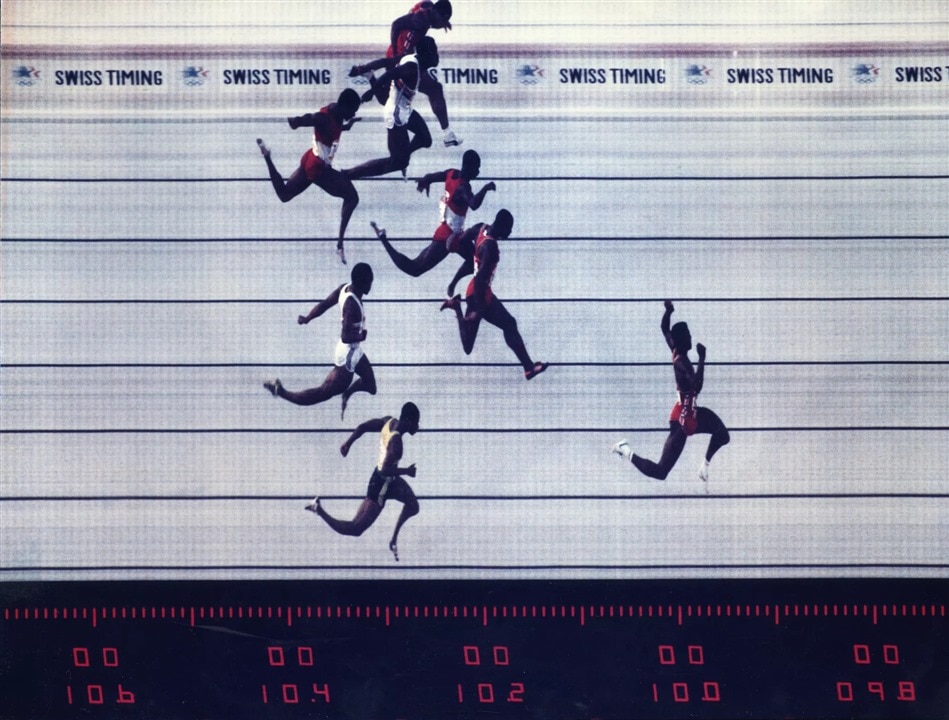
Judges will rely on OMEGA’s SCAN’O’Vision ULTIMATE footage to help determine winners in close races. (Image Credit: OMEGA)
I’m always a big fan of the Olympics when it rolls around. I’m particularly excited about this year’s debut of Breakdancing as a competition. I suppose I’m also stoked for the 2nd appearance of skateboarding. This year, I figured artificial intelligence (AI) would be front and center. I was not disappointed.
OMEGA’s Scan’O’Vision ULTIMATE is being deployed at the Paris 2024 Olympics, helping to determine race winners for events like athletics and track cycling. This advanced photo-finish technology captures up to 40,000 extremely clear digital images per second as athletes finish the race. Scan’O’Vision ULTIMATE uses color sensors for image quality enhancements without pixel interference, allowing judges to make quick and precise decisions in close finishes.
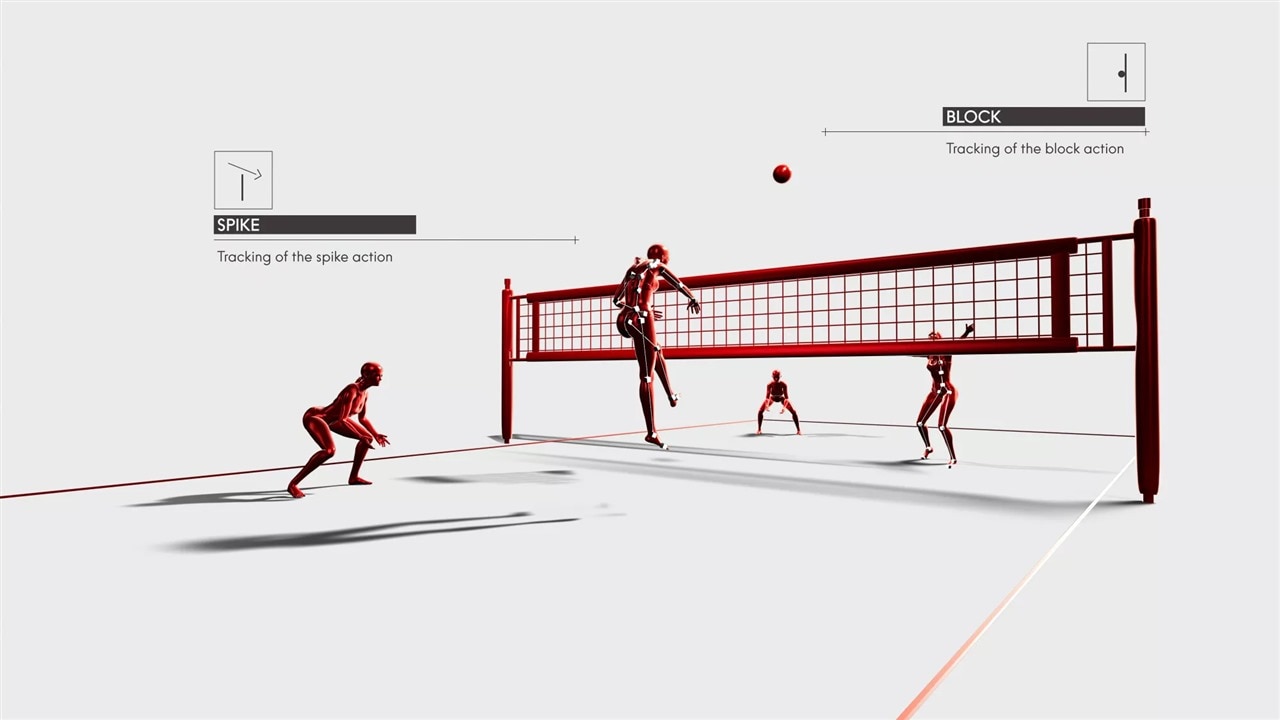
The computer vision system tracks an athlete’s technique in a 3D visual. (Image Credit: OMEGA)
A computer vision system will track athletes and objects during events. It features single or multiple cameras with AI models trained for specific sports. For beach volleyball, HD cameras are installed around the playing field so players won’t need to wear sensors in their uniforms to track player movements and the ball. The system shows the player’s and ball’s speed, how much ground the athlete covers, shot types (smashes, blocks, and spikes), and unique player techniques.
It’s also being used in diving to generate 3D visuals for performance metrics analysis. Cameras track divers, and once they enter the water, AI and algorithms reproduce a 3D image of the dive. Judges then use the image data and calculated metrics, including airtime and speed into the water, to review the quality of the performance. Image data also tracks the body positions and distance between the athlete and the board while they dive.
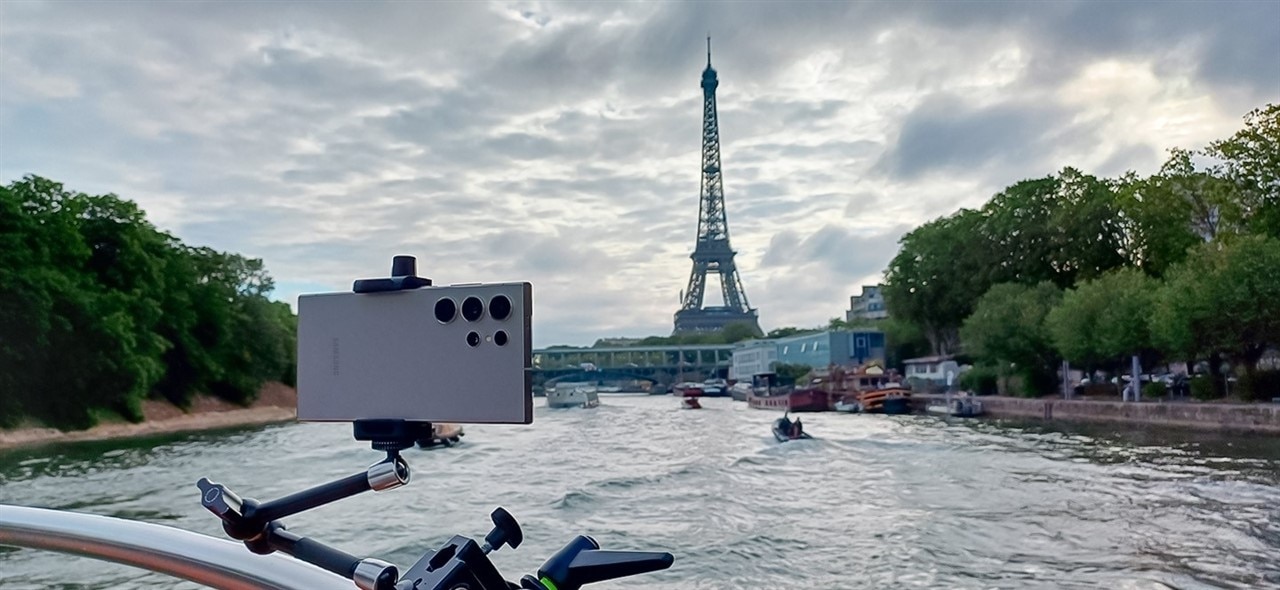
Samsung is mounting its S24 cameras on boats to give viewers a closer look at the opening ceremony and sailing competition. (Image Credit: Samsung)
Samsung is placing over 200 of its Galaxy S24 Ultra smartphones, connected to 5G, on 85 athlete boats at the opening ceremony, providing viewers with an up-close experience of the event on the Seine River. Samsung’s S24 Ultra smartphones will also be deployed on all the competing boats during the sailing event in Marseille. That way, fans get a closer look at the races.
Samsung worked closely with Orange and the Olympic Broadcasting Services (OBS) to ensure the image quality wouldn’t deteriorate due to weather conditions. The smartphone uses optical image stabilization (OIS) features to boost transmission power, helping overcome potential weather-related image quality issues. Relay towers installed on chase boats also keep the streams running smoothly.
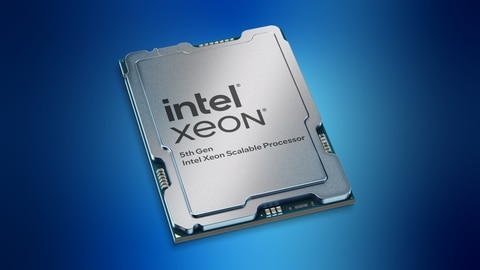
Intel’s Xeon processors will be used in the AI-powered talent identification system and for end-to-end 8K broadcasting for the first time in the Olympics. (Image Credit: Intel)
Intel has collaborated with Samsung to develop an AI-powered talent identification system. This cloud-based AI platform is trained on Intel’s Gaudi accelerators, running on Intel Xeon processors with built-in AI acceleration and optimized with OpenVINO. Attendees can have their athletic drills analyzed, and the AI system matches their profile to an Olympic sport.
Intel’s Xeon processors will also be used to showcase end-to-end 8K broadcasting. Broadcast servers running on Intel Xeon Scalable processors with Intel Deep Learning Boost technology encode and compress signals generated by OBS at 8K/60FPS/HDR More Faster/Better Pixels (48 Gbps RAW to 40-60 FPS distribution using VVC standard) in milliseconds. Intel-based laptops and PCs connected to 8K TVs receive an 8K over-the-top (OTT) signal, enhancing the experience for viewers.
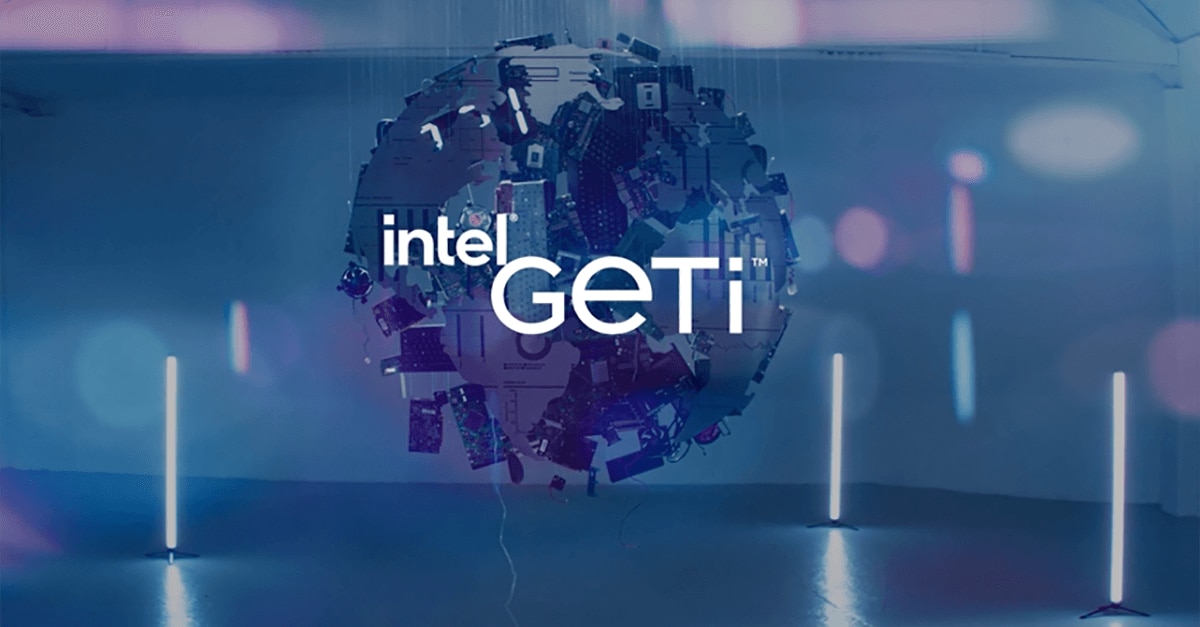
Intel’s Genti software tools are being used for AI-driven sports highlights generation. (Image Credit: Intel)
The Olympic Broadcasting Services is working with Intel to introduce automatic highlights generation. This system’s highlights inference engine is based on AI models trained on Intel’s Geti software tools that specialize in AI-supported visual content processing. It produces highlight packages across various sports and delivers them to fans instantly, resulting in efficient editing and production for broadcasters. The AI models are trained on previous Olympic sports content, ensuring the right highlights are precisely generated.
I'm sure to collect more stories of Olympic tech as they show up. Remember to catch the opening ceremonies today, Friday the 26th.
Have a story tip? Message me at: http://twitter.com/Cabe_Atwell
